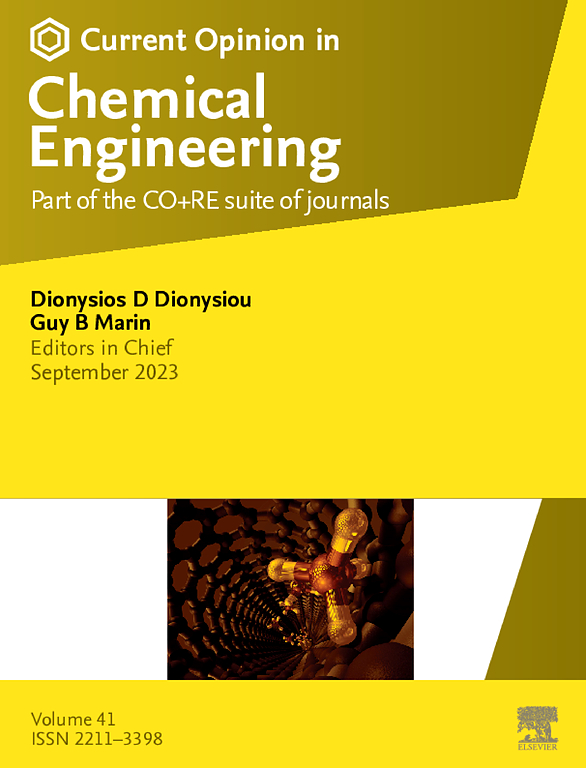自由基化学驱动的聚合物合成,改性和回收:建模趋势,以升级我们的知识和工艺设计
IF 6.8
2区 工程技术
Q1 BIOTECHNOLOGY & APPLIED MICROBIOLOGY
引用次数: 0
摘要
聚合物的合成、改性和再循环是聚合物反应工程(PRE)的重要过程,在许多情况下依赖于自由基化学。最佳设置和创新在很大程度上取决于表征程度,而表征程度因许多链长度、组成和拓扑结构而变得复杂。为了掌握大分子的变化,我们需要将实验和建模方法相结合,后者是目前工作的重点。重点是(1)更快的动力学蒙特卡罗模拟;(ii)寻求通用解算器;(iii)参数确定方案;(iv)结构-属性关系的建模输出;(五)通过人工智能和机器学习方法进行优化。本文章由计算机程序翻译,如有差异,请以英文原文为准。
Radical-chemistry-driven polymer synthesis, modification, and recycling: trends in modeling to upgrade our knowledge and process design
Polymer synthesis, modification, and recycling are important polymer reaction engineering (PRE) processes that rely in many cases on radical chemistry. The optimal settings and innovation depend strongly on the characterization degree, which is complicated by the many chain lengths, compositions, and topologies. To grasp macromolecular variations, we need to bridge experimental and modeling methods, the latter the focus of the present work. Emphasis is on (i) faster kinetic Monte Carlo simulations; (ii) the striving for universal solvers; (iii) protocols for parameter determination; (iv) modeling outputs for structure-property relationships; and (v) optimization via artificial intelligence and machine learning methods.
求助全文
通过发布文献求助,成功后即可免费获取论文全文。
去求助
来源期刊

Current Opinion in Chemical Engineering
BIOTECHNOLOGY & APPLIED MICROBIOLOGYENGINE-ENGINEERING, CHEMICAL
CiteScore
12.80
自引率
3.00%
发文量
114
期刊介绍:
Current Opinion in Chemical Engineering is devoted to bringing forth short and focused review articles written by experts on current advances in different areas of chemical engineering. Only invited review articles will be published.
The goals of each review article in Current Opinion in Chemical Engineering are:
1. To acquaint the reader/researcher with the most important recent papers in the given topic.
2. To provide the reader with the views/opinions of the expert in each topic.
The reviews are short (about 2500 words or 5-10 printed pages with figures) and serve as an invaluable source of information for researchers, teachers, professionals and students. The reviews also aim to stimulate exchange of ideas among experts.
Themed sections:
Each review will focus on particular aspects of one of the following themed sections of chemical engineering:
1. Nanotechnology
2. Energy and environmental engineering
3. Biotechnology and bioprocess engineering
4. Biological engineering (covering tissue engineering, regenerative medicine, drug delivery)
5. Separation engineering (covering membrane technologies, adsorbents, desalination, distillation etc.)
6. Materials engineering (covering biomaterials, inorganic especially ceramic materials, nanostructured materials).
7. Process systems engineering
8. Reaction engineering and catalysis.
 求助内容:
求助内容: 应助结果提醒方式:
应助结果提醒方式:


